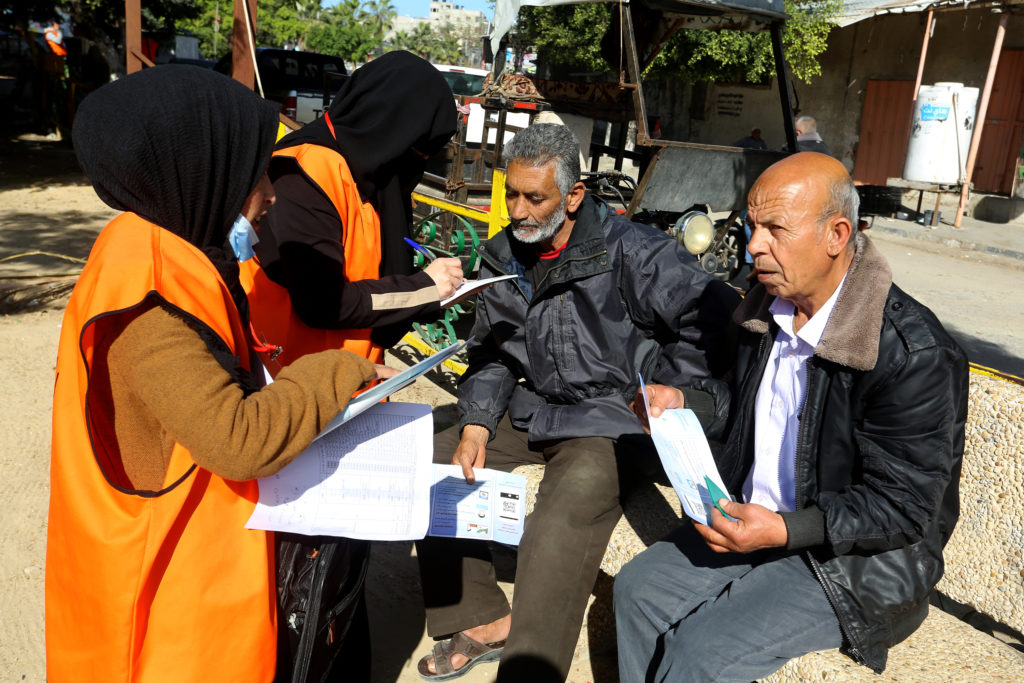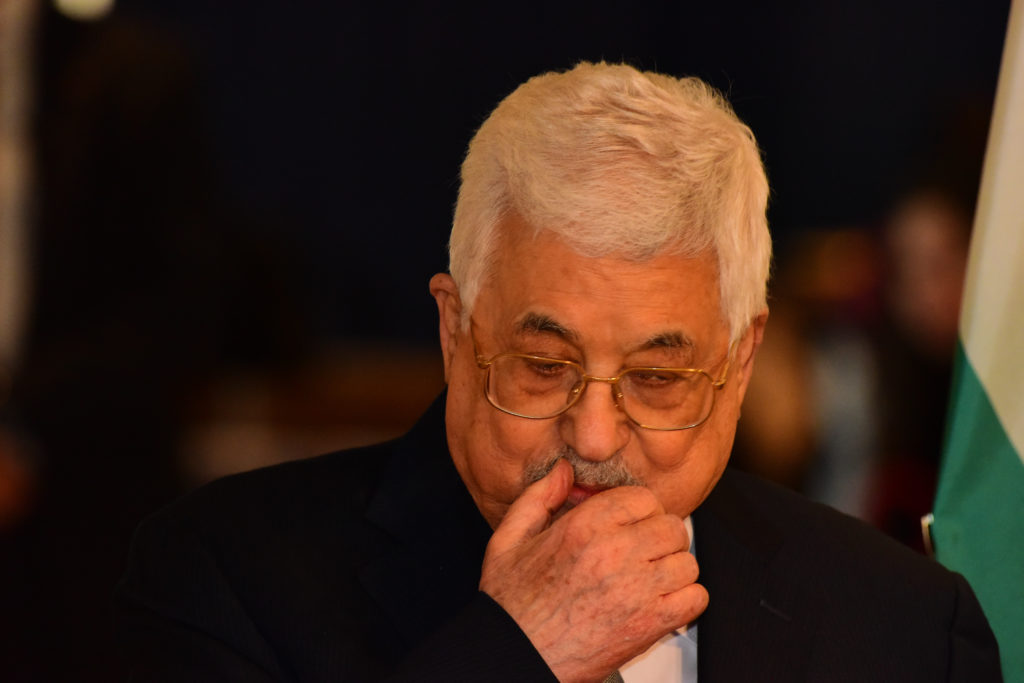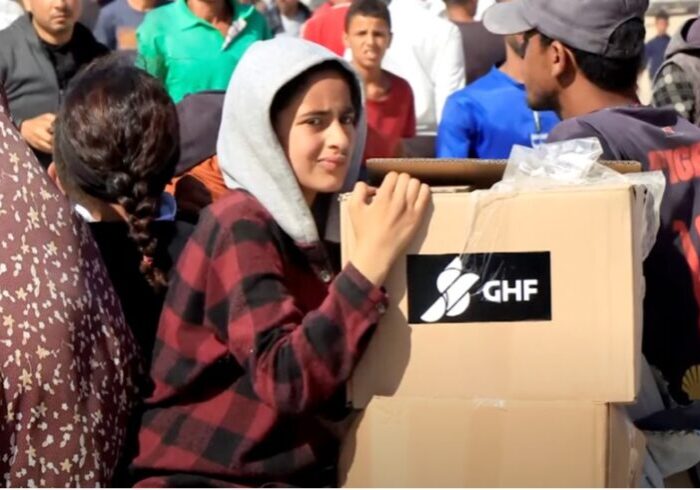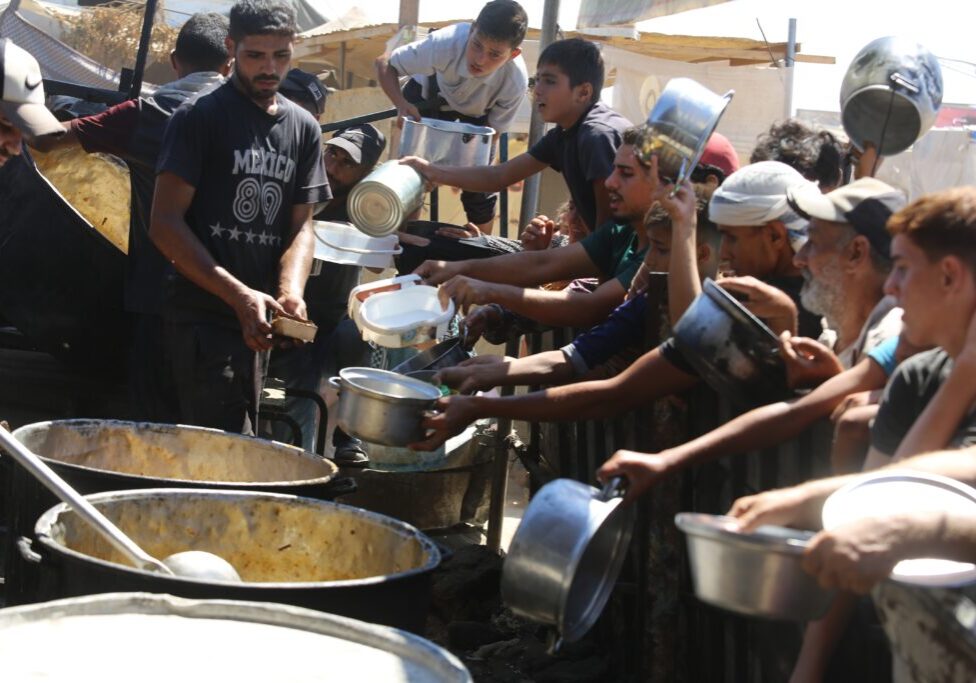Australia/Israel Review
The perilous Palestinian elections
Apr 27, 2021 | Elliott Abrams

In January of this year, Palestinian president Mahmoud Abbas did something that had not been done since 2006: scheduled an election. Indeed, he scheduled three: an election on May 22 for the Palestinian Legislative Council (PLC), the parliament for the West Bank that has been in suspension since 2007; an election on July 31 for the presidency of the Palestinian Authority (PA); and an election on August 31 for the Palestinian National Council (PNC), the Palestine Liberation Organisation’s (PLO) own sort-of parliamentary body. Whether any of the three will actually take place remained entirely uncertain as of this writing (in late April 2021).
To understand why these elections may not come off, and why it may be better that they do not, requires an excursion into those 2006 elections.
In October 2004 Yasser Arafat died and Mahmoud Abbas (his loyal, long-time aide) was selected his successor as Fatah Party and PLO Chairman by the PLO big-wigs. Abbas did not need a presidential election to become PA president, but he wanted one. He wanted the legitimacy that a reasonably free election victory could bring him personally, and he wanted to show the US and others that post-Arafat, Palestinians were capable of democratic self-rule. That presidential election was held in January 2005 and it was in fact generally regarded as a reasonable effort. People could and did campaign against Abbas, who ran as the candidate of the ruling Fatah Party and got about two-thirds of the votes (not the 90-plus percent we were accustomed to seeing in many elections in Arab lands).
Encouraged, Abbas and other PA and Fatah leaders decided next to hold parliamentary elections – for the PLC. These were initially scheduled for the summer of 2005 but postponed until Jan. 25 2006 due to incompetence and internal divisions within Fatah. In those 2006 elections, Hamas was the victor with 44% of the popular vote versus 41% for Fatah. But because Fatah foolishly ran multiple candidates in some districts, and because Hamas was smart enough to run many attractive candidates (often choosing people not for their militancy but for their level of education or civic work), Hamas had a big victory when it came to PLC seats: 74 out of the total 132 seats and a clear majority.
The United States immediately stated that it would not work with a terrorist group, Hamas. And it went further: because the PA had a partly parliamentary system where the prime minister and other ministers reported to the PLC, the United States refused to deal with the prime minister or with any ministry. It continued to deal with President Abbas, who had separate and independent powers, and with other independent players in the Palestinian system – governors of regions, the intelligence services, the judiciary, and the monetary authority.
This awkward and frozen situation lasted until June 2007, when Hamas took full control of Gaza and President Abbas, in the face of this Hamas ‘coup,’ disbanded the PLC and began to rule by decree – as he has now for 14 years.
These events are worth review because history might repeat itself should the parliamentary election come off and be won by Hamas – or even if Hamas makes a strong showing. Because the Palestinian electoral system has been changed to proportional representation, no single party will win the number of seats Hamas got last time. But this also means that even if defeated by Fatah, Hamas (which according to polls in March might win 20-30% of the vote) is likely to have a strong role in governing the PA. Thus, the fundamental problems that presented themselves in 2006 remain: can there be a democratic election in a non-democratic entity like the PA, half run by Hamas and half by Fatah, neither part run democratically? And what are the implications for Palestinian politics, and for Israel, Jordan, and the so-called ‘peace process’ should Hamas win a majority or a strong minority presence?
TERRORISTS AND ELECTIONS
We should begin with the question of participation in a supposedly peaceful, democratic election by an armed terrorist group. This was a contentious issue in 2006, and the relevant parties united in the international ‘Quartet’ – the US, EU, Russia, and the United Nations in the person of Secretary General Kofi Annan – fudged the issue. Despite strong urgings to bar Hamas by some Israeli officials, including then-foreign minister Tzipi Livni, and by some US democracy activists concerned about the precedent being set, the US Administration and the whole Quartet did not wish to bar Hamas from running. The decision was in essence to allow Hamas to run but not to participate in governing if it won – unless it agreed to the three Quartet demands. The Quartet spoke on Jan. 30, 2006 – notably, five days after the Hamas victory:
The Quartet congratulated the Palestinian people on an electoral process that was free, fair and secure… the Quartet concluded that it was inevitable that future assistance to any new Government would be reviewed by donors against that Government’s commitment to the principles of non-violence, recognition of Israel, and acceptance of previous agreements and obligations …
Today, in 2021, Hamas has still not agreed to those three demands: commit to non-violence (instead of terror), recognise Israel, and accept previous Israel/PLO agreements (such as the Oslo Accords). While it is not likely that Hamas will win a majority if elections are held on May 22, it will surely win seats and have a place in the PLC. Will the United States, EU, and Russia accept such a role for a terrorist group in the governing of the PA?
In 2006, Russia and some European figures sought to persuade Hamas to make a few gestures, such as employing softer language, that could be used to argue they were beginning to move toward compliance with the Quartet demands. Hamas refused, but perhaps in 2021 Russia or the EU would have lower standards as to what is a sufficient gesture, and perhaps Hamas would be slightly more flexible.
Perhaps – but Hamas is running some convicted terrorists as parliamentary candidates this time around. Nael Barghouti was convicted in 1978 of murdering an Israeli army officer. Jamal Abu al-Hija was convicted of involvement in car bomb attacks that killed 11 and injured scores, and is serving nine life sentences in an Israeli prison. Naed al-Fakhouri was convicted of recruiting suicide bombers. These are not the only examples.
Why might Hamas want these elections to come off? One of its key goals in 2006 and still now in 2021 is to play a legitimised role in Palestinian governance. Perhaps an even larger goal was and is to gain entry into the PLO. The PLO is after all considered by the United Nations to be ‘the sole legitimate voice of the Palestinian people’ and is charged with managing foreign relations for that people – those who live in the West Bank and Gaza or who live in camps in Lebanon or Jordan, and indeed those living anywhere in the world. It is the PLO, not the PA, that has observer status in the United Nations. Arafat kept Hamas – and other groups such as Islamic Jihad – out of the PLO in order to maintain his and Fatah’s control there. These 2021 elections will give Hamas a definite beachhead. For example, all PLC deputies will automatically be deputies in the PNC, the PLO parliamentary body, as well.
That is one reason many observers pray for the election to be called off. From the US, Israeli, or Jordanian point of view, these 2021 elections are a nightmare. For Jordan, still in the throes of Hashemite family clashes, a new Hamas presence in the PLC and more importantly in the West Bank would mean nothing but trouble. The real fear in Amman is that Hamas would increase its influence on Jordanian Islamists, enticing them into tougher anti-Israel and anti-Hashemite stands or even into the use of violence. For Israel, which deals with the PA every day on issues from vaccinations to anti-terrorist cooperation, a Hamas presence in the PA and in the West Bank would similarly make an already extremely difficult modus vivendi far harder to maintain. For Washington, the Biden Administration’s efforts to rebuild relations with the PA would face an impossible burden if the PA and PLC contain an officially designated terrorist group.

PA President Mahmoud Abbas made the decision to call elections – and it will be up to him to decide whether to cancel or postpone them (Credit: Shutterstock)
ABBAS’ THINKING
Given all these dangers, why is Abbas going forward? As in 2006, there is a significant legitimacy issue. He has now been ruling by decree for 14 years and the PA establishment in Ramallah, infamous for corruption and inefficiency, is not only viewed dimly by governments around the world but by its own people as well. An election would arguably inject some legitimacy into the system, even given the problems it would also create.
But there is another motivation, one that was entirely absent in 2006: the rapprochement between Israel and many Arab governments. Never before, or certainly never since Arafat backed Saddam Hussein’s invasion of Kuwait in 1990, have Arab capitals been less solicitous of the Palestinian leadership and less supportive of their cause. The election may be a bid by Abbas to win more European and American backing by showing a commitment to democratic forms; he may think it is possible thereby to reinvigorate the moribund ‘peace process.’ This is a huge miscalculation, because for most officials in Jerusalem and Washington the increased role for Hamas will more than balance the desirability of ending Abbas’ rule by decree.
There is another factor related to the election that Abbas may not intend but may reluctantly and realistically accept: it would be an opening stage in the succession struggle that will come when Abbas, now 86 and in middling health, dies. Abbas, copying his mentor Arafat, has never allowed a probable successor in his Fatah, PA, and PLO roles to emerge. But now would-be successors are on the political stage, and if there is an election and the PLC is reopened, its speaker would become acting president of the PA upon Abbas’ death.
THE PARTIES
Thinking and planning for that day has split Fatah in ways that PLC elections did not do in 2006. As of the day candidacies had to be registered, March 31, there were more than 30 tickets running, including one for Hamas and three that emerged from Fatah. One Fatah group is the ‘official’ list, representing Abbas and the PA/PLO/Fatah establishment. A second represents Mohammed Dahlan, the Gaza-born figure expelled from Fatah in 2011 and living since in the UAE. The third list is in some ways the most interesting and most dangerous for the ‘official’ ticket and for the rulers in Ramallah. It is led by Marwan Barghouti, a Fatah hero who is serving five life sentences for murder in an Israeli prison, and Nasser al-Kidwa, a nephew of Arafat’s and former Palestinian UN envoy and foreign minister. The Barghouti-al-Kidwa parliamentary ticket is headed by Barghouti’s wife, standing in for him. Polls have repeatedly shown that if Barghouti were to run for PA president, he would handily defeat both Abbas and the Hamas leader Ismail Haniyeh. If either this Barghouti list or the Hamas list outpolls Fatah’s official group, it will be a devastating embarrassment for Abbas and his cronies.
WILL THE ELECTIONS HAPPEN?
It is apparent, then, why observers have wondered all year whether Abbas would in the end call the elections off. Does he really want a coalition government with Hamas, should the various Fatah and independent tickets not win a majority of seats? Does he really want a presidential election in July that could force him from office?
There are always excuses for cancellation, ranging from a new COVID outbreak to a refusal by Israel to allow Palestinians in east Jerusalem to vote. As to the latter, there are always acceptable technical fixes if they are wanted – but difficulties in Jerusalem always offer a good excuse to cancel the election if that is the result desired in Ramallah.
But what if the PLC elections are in fact cancelled? This decision lies solely in Abbas’ hands, and it is likely that today he feels trapped by bad choices. While such an outcome avoids the many problems noted here, it deepens the crisis of legitimacy for Abbas, who would still be ruling by decree after 14 years. Cancelling the presidential and PNC elections as well makes that problem even worse, leaving Palestinians with no institutional political life, an 86-year-old president-for-life, and no way to address the Fatah-Hamas split either now or when Abbas dies.
Which is worse, then: that outcome, or a set of elections that legitimise Hamas’ role in Palestinian political institutions while it maintains its terrorist activity – competing, as the saying goes, with ballots and bullets? The answer is clear for what seems to be the majority of observers in Washington and Jerusalem, and likely in Arab capitals as well.
CONCLUSION
The fundamental problem remains what it was in 2006. Neither of the two Palestinian entities, the West Bank and Gaza, is democratically governed, and Gaza is governed by a terrorist organisation that has shown no sign of being willing to abandon violence. These elections may come off, but they will have moved the Palestinian people no closer to being governed peacefully by democratic political parties, nor will they have reinvigorated the ‘peace process’.
Indeed, if Hamas comes to take an official role in the West Bank and in the PLO, the establishment of a Palestinian state will — for better or for worse — be even less realistic than it appears now.
As in Lebanon due to the role of Hezbollah, Palestinians face what is for now an impossible task: coping with an armed, aggressive terrorist group that seeks to use political mechanisms to enhance its power but will not disarm and submit itself to democratic control.
Elections cannot solve that problem.
Elliott Abrams is Senior Fellow for Middle Eastern Studies at the Council on Foreign Relations. He was Deputy National Security Advisor to George W. Bush. © Fathom Magazine (www.fathomjournal.org), reprinted by permission, all rights reserved.
Tags: Elections, Fatah, Hamas, Palestinians






